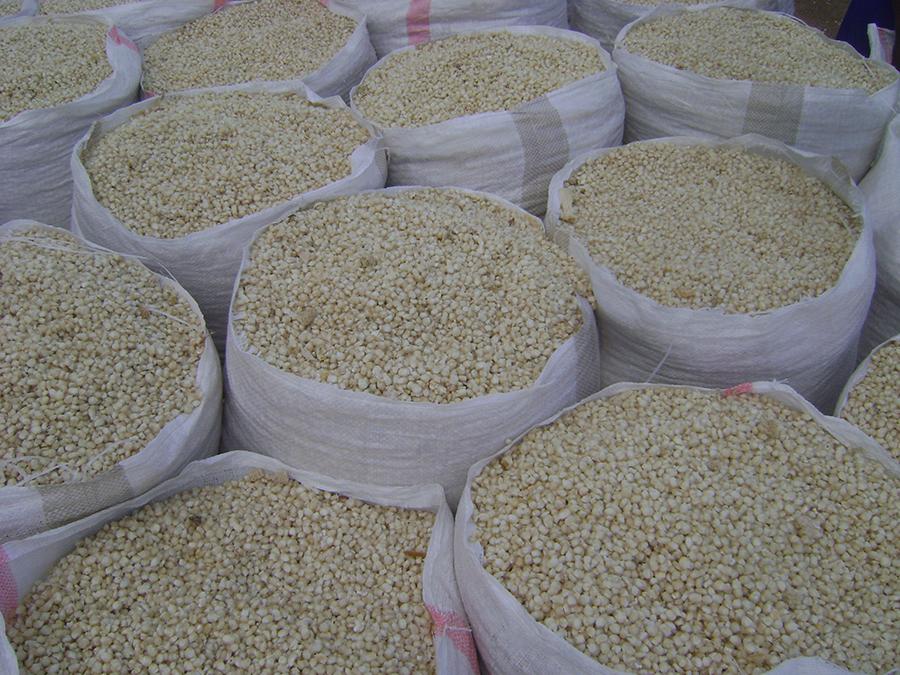Opinion: Uganda should not over rely on Kenya
Several Ugandan traders suffered losses when the Kenyan government banned our maize from entering their territory.
Despite Kenya lifting the ban a couple of days later, for some it was a reminder for us as a country to sell our maize after adding value to it.
Keep Reading
Value addition is good but at the moment it does not go far enough in addressing the concerns of the Kenyan authorities and their allegations of our maize containing dangerous toxins.
However, what we need in the long run is to reduce dependence on Kenya as both our main market and route for our goods. Uganda needs to expand the market base for her commodities such as maize and other products.
A couple of years ago, our local farmers while seeking government intervention were worried about the low prices of maize and where to sell it because of excessive supply then.
Without seeming pessimistic, we should anticipate more bans on our products in the future whether from Kenya or another country.
This is not the first time such a ban is happening because in the recent past, Kenya has slapped a ban on milk from Uganda.
Ultimately, creating more markets for our goods could be the ideal solution rather than over relying on Kenya.
In September 2020, President Museveni and his cabinet approved a plan to construct a network of roads in the Democratic Republic of Congo, which suggestion was both misunderstood and not well received by some sections of the public and the media.
Roads connecting Uganda deeper into the DRC markets would be one of the solutions to reduce dependence on Kenya.
Although the government did not expound more on this matter, the intention was probably to create or open up more markets for Ugandan goods elsewhere in the region which would benefit Ugandans socio- economically.
Not a bad decision after all, considering the fact that many Kenyan companies have turned the DRC into a major “hunting ground”.
A few months down the road, the Kenyans had banned our maize from entering Kenya. Despite the Kenyan authorities rescinding their decision on our maize, Uganda still has to play by the tunes of the Kenyans through abiding by their conditions which shows how the Kenyans still have the upper hand in this relationship.
The timing of the ban could not have been that bad as it also coincided with the issue of Uganda and Rwanda borders not having been fully resolved.
Similarly, another country in the region Burundi, has also banned maize imports into its territory for six months if we are to believe some media reports.
Similarly, the effects of the covid-19 pandemic which have almost erased many of the gains Uganda as a country has made in eradicating poverty are still within our midst.
 Maize in a store
Maize in a store
All the signs and reasons for the ban given by the Kenyan authorities believe them or not, pointed towards protectionism.
On the whole, the reasons given by the Kenyan authorities are based on the fact that our maize contains mycotoxins which are capable of causing cancer. Such claims, depending on their validity, should definitely be investigated and the outcome made public for the benefit of our maize farmers and traders.
Allegations of our maize which is a staple food in the region containing toxins that cause cancer are serious and should be treated with utmost urgency.
Even though cancer levels in East Africa are growing higher every year, they are mostly due to lifestyle changes as a result of economic changes in the region according to the International Agency for Research on Cancer.
However, if Ugandan maize is good enough for us as Ugandans, then I suppose it should be good enough for all including Kenyans. I can understand that the Kenyan authorities are probably trying to protect their local producers who may feel out-competed by cheaper Ugandan products.
Such protectionism could potentially have far reaching consequences to the ordinary Ugandan and our economy at large.
That notwithstanding, Uganda is still a crucial trading partner with Kenya. Indeed, Uganda exports to Kenya amounted to US$ 580.15 million during 2018(UN COMTRADE).
In the past few years, Uganda has exported more locally produced goods to Kenya than the latter. Ugandan goods have in the recent past struck a code with the Kenyan consumer as being favourable in terms of prices and offering value for money. From a local perspective, Kenyan traders have also been active on the Ugandan market too.
In Nakeseke district, where a failed tomato processing plant closed, our local farmers sell tomatoes more to the Kenyan traders than to our local markets because the Kenyans offer better prices according to the farmers.
One cannot blame the local farmers since the market is dictated by forces of demand and supply. Many of the tomato farmers are young men and women something that has helped in the fight against poverty in the area.
So, if such a ban were extended to Ugandan products like tomatoes, then it could be absolutely devastating for our farmers.
Any sudden bans on Ugandan products in the future with undue regard to the EAC treaty and its protocols are unwarranted considering the fact that both countries have enjoyed a long history of co-operation for several decades.
On one hand, we have a Ugandan president who has always championed for more regional integration and free trade which ideal has been good in terms of uplifting the Ugandan economy on other hand, there are Kenyan authorities trying to pursue protectionism.
Such competing ideologies could affect the whole region especially if protectionism spirals out of control resulting in high tariffs or a total blockade of goods hence, affecting the entire region economically.
I watched some law makers call for retaliation, but retaliation cannot be the answer because two wrongs do not make a right. Engaging the Kenyans diplomatically and possibly reminding them of their need to respect the EAC treaty and all its protocols relating to trade would be a better option.
A trade war is not what everyone wishes for because it would only lead to an endless tag of war in which Uganda would come out worse off in comparison to Kenya which enjoys monopoly over access to the sea.
Generally, as a country we have to reduce over-reliance on Kenya for most of our trade.
The actions of Kenya reveal to us as well that, they are capable of bringing us to our knees and we would definitely succumb if we do not do fix some of the basics.
For instance, our people need reminding all the time and therefore, there is need to first engage and then sensitize the farmers continuously about alternative markets and the available opportunities in producing for our local industries.
The campaigns to market and boost Ugandan products should not remain in urban areas, they should be taken to the doorsteps of our local farmers. When these farmers start producing for our local industries, then incentives should come in and obviously a discussion about price.
However, change is gradual, some changes cannot be enforced without first changing the mindsets of the people in the area. Even right now, there is a fruit processing factory which was launched by President Museveni in Kapeeka industrial park, Nakaseke district but there are hardly any mango farms in the area and those who do Mango farming cannot produce enough for this factory.
So, many of the mangoes processed there, come from Kenya which is almost embarrassing. Uganda needs to continue investing in her infrastructure in terms of storage facilities and improvements in the transport sector to absorb any economic shocks in case of future bans to reduce reliance on Kenya.
If Kenya reinstated her ban on maize or even extended it to other products, or if Burundi continued with its ban on its maize imports and with the Rwanda border issue not being settled fully then, Uganda would not have that many options left.
Then, President Museveni could be vindicated by his plans of constructing a road network in the Democratic Republic of Congo.
Such a plan would be a better option for starters instead of our traders and the taxman losing billions in terms of revenue. Sometimes in leadership, having a vision is all it takes.
The EAC might have achieved many milestones in the past but this regional block of countries is far from a perfect union as some countries have always enjoyed the lion’s share even when it comes to job opportunities.
All in all, continued political efforts aimed towards regional integration and free trade is what we all need to prosper in the region. If we as Ugandans have access to other markets, we will not need over reliance on Kenya.
The Author is an advocate.

















